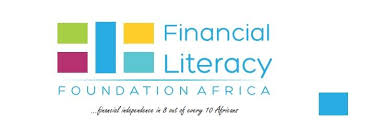The Financial Literacy Foundation Africa has launched a Financial Literacy for Coronavirus Alleviation programme (FLICA) which aims to provide education on how to handle economic and financial hardships arising from the Covid-19 pandemic.
This continental project will take place in all 46 countries in sub-Saharan Africa and aims to achieve financial independence for eight out of every ten individuals by 2030.
"The strategic approach will address attitudinal and behavioral barriers to our goal of financial wellness through public education on audio, visual, online, and on-air channels with resource materials in both official
and local country languages," the foundation has indicated.
As projected by the UN, the Covid-19 pandemic is likely to present a situation where nearly 30 million more people could fall into poverty.
The International Monetary Fund (IMF) has also estimated that the economic impact of the virus will be a global recession like the levels seen in the financial crises of 2008 that is, a 2.5% contraction and at best a no growth in 2020.
And the situation is expected to be worse in Africa where GDP is now projected to contract by 5.4% in 2020, a double of what was projected in April 2020.
FLICA will "educate individuals on personal financial prudence to mitigate financial crises emanating from reduced incomes, sudden job losses, and increased health costs due to the Covid-19 pandemic."
It is also to assist in closing the financial inclusion gap and help low-income earners as well as MSMEs, which constitute an important source of revenue for poor households, to achieve financial wellness, access available stimulus packages, make the most of their cashflows, tax returns, savings, credit, investments, mortgages, insurance, and pensions.
In addition, FLICA will employ consistent, strategic and collaborative partnerships with institutional stakeholders such as donor agencies, ministries of finance and economic planning, regulatory bodies, community service, education service, health service, security service, academia, industry and professional bodies in achieving financial wellness for all.
"It will also engage governments in addressing structural barriers to achieving long-term, continental improvements in institutionalizing financial literacy," the Foundation further indicated.
Latest Stories
-
NPP’s Charles Forson declared winner of Tema Central seat
42 minutes -
Re-collation: Annoh-Dompreh declared winner of Nsawam-Adogyiri seat
54 minutes -
Low trust in EC fueling ‘protect the ballot’ mentality among political parties – CDD-Ghana
1 hour -
Ongoing re-collation illegal – Ablakwa
1 hour -
Tema Central re-collation stalls as returning officer cites threats on his family amid chaos
1 hour -
Akufo-Addo grants Presidential Charter to Entrance University of Health Sciences and 13 others
1 hour -
Election re-collation: Go to IPAC and dialogue, says Rev. Dr. Fred Deegbe
1 hour -
We have no knowledge of court petition to halt re-collation – EC
2 hours -
Televising re-collation will boost public confidence in election results – Barker-Vormawor
2 hours -
Re-collation: EC announces NPP’s Patrick Boakye Yiadom as winner of Obuasi East seat
2 hours -
What happened at Tesano collation centre was a disgrace to democracy – Frank Davies
3 hours -
Heavy security at EC G/A Regional office ahead of re-collation
4 hours -
Playback: Newsfile probed ORAL, re-collation & transition blues
5 hours -
Ghana-Russia Centre supports pupils of Pakro-Zongo basic school
6 hours -
Ghana launches Malaria Youth Corps, leveraging youth power in fighting malaria
7 hours

